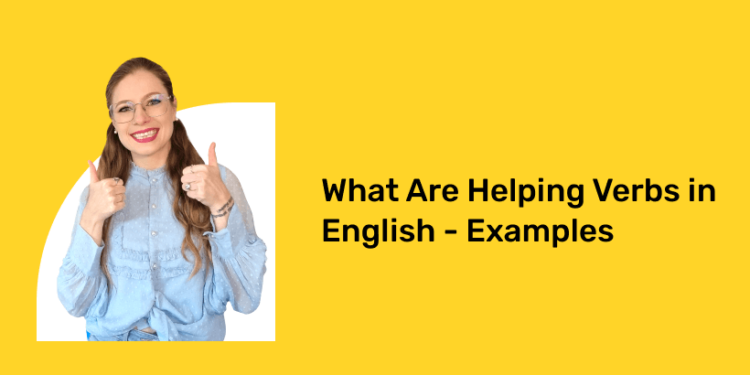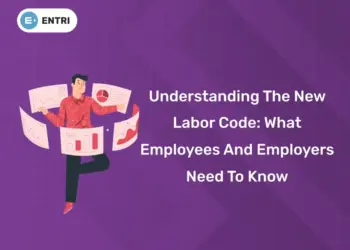Table of Contents
Although grammar may seem quite tricky, understanding it isn’t as hard as you think. When learning English, the helping verbs help to study up on the particulars that can at times make the language seem confusing. Here, we will be taking a look at “helping verbs,” which do exactly what their name implies– they help! A helping verb, generally, is a verb that helps the main verb in the sentence by extending that verb. Still unclear? We break it down for you part by part, so keep reading.
What is a Verb? Types of Verbs with Examples
What Is a Helping Verb?
A helping verb, also known as an auxiliary verb, is a verb that combines with a main verb to form a verb phrase. It is also called a verb marker sometimes, indicating that a verb is to follow. As the name suggests, a helping verb is generally a verb that helps another verb and is usually employed in a sentence to modify or alter the tense, voice or mood of the sentence.
Definition of a Helping Verb
1: Which of the sentences below is grammatically correct?
According to Merriam-Webster Dictionary, a helping verb is “a verb (as, am, may, or will) that is combined with another verb to express person, number, mood, or tense”.
There are 23 helping verbs which can be broken down into 2 main categories: Primary helping verbs and Modal helping verbs.
Primary helping verbs, sometimes, can be used as main verbs. As helping verbs, they generally have several purposes.
> show tense (Veronica is late to the reception. She will be here in 15 minutes. She has taken the dessert with her.)
> to make the passive voice (Honey is made by bees.)
> make a negative sentence (Mia does not want honey in her tea.)
> to ask a question (Do you want sugar in your tea?)
> to make emphasis (Yes, I do want sugar.)
> to compensate for the main verb (Ezra runs faster than Harris does run.)
Modal helping verbs help change or modify the meaning of the main verb. They, however, express several purposes like
> necessity (I must go to the dentist today.)
> possibility (Violet could buy a new phone at the mall.)
> ability (I can play the guitar.)
Elevate your speaking skills with our Spoken English Course!
How to Use a helping Verb
We can use helping verbs, which are indeed verbs, for the following functions:
> Assist the main verb or the ‘action verb’.
> Make negative sentences.
> Ask questions
These verb phrases act as complete verbs. Nonetheless, they need to be there in order to make a correct sentence. It isn’t necessary for them to be next to each other in the sentence, but they always function together.
To use helping verbs productively, you should know how it is combined to represent a different tense, mood or voice. So, let’s have a look at the examples given below to understand better.
Examples:
- I am going to speak at the formal ceremony tomorrow.
- We are having mac and cheese for dinner tonight.
- What are you making?
- The kids have been waiting to have ice cream.
- The Silverhills Apartments was built by A.K Builders.
- You cannot change your viewpoint.
- I did have a good friend.
- Do you need any help with your homework?
- Were you feeling nervous when you went live on TV?
- Peter will take care of the plants.
Spoken English Course for Guaranteed Confidence and Career Growth
Spoken English Course by Entri App: Enhance your communication skills, gain certification, and boost your career with confidence.
Join Now!List of Helping Verbs of All Tenses
Given below is a list of helping verbs and how they conjugate to represent the different tenses.
| Tense | Examples | Helping Verb |
| Present Continuous | Emma is making lasagna. | Is |
| Present Perfect | She has spoken to the warden about it already. | Has |
| Present Perfect Continuous | Chandler has been smoking for more than an hour. | Has been |
| Past Continuous | Rachel was working at the restaurant. | Was |
| Past Perfect | Miya had not worked at the confectionary for seven years. | Has not |
| Past Perfect Continuous | My colleagues had been wanting to come home for a while now. | Had been |
| Future Continuous | I will be playing the guitar at the party tomorrow. | Will be |
| Future Perfect | The plumber will have fixed all the pipelines in three days. | Will have |
| Future Perfect Continuous | The host will have been serving lunch for thirty people at this time tomorrow. | Will have been |
Start speaking English like a native with our comprehensive course.
Check Your Understanding of Helping Verbs
Fill in the blanks with the correct form of the helping verb in the following sentences:
- We _____ been waiting for our exams for over a week.
- I ______ meet my long lost friend soon.
- ________ they quarrelling?
- I just ________ tolerate your friends.
- She _______ working as a lawyer for four years now.
- They ______ be reaching Ooty by 9 p.m.
- _____ you still staying next to Central Park?
- The flight ___________ arrived at Mangalore airport by 6 p.m tomorrow.
- You ________ looking gorgeous.
- They _______ to obey their teachers.
Check the following answers and understand how far you have understood the concept of using helping verbs.
- We have been waiting for our exams for over a week.
- I will meet my long lost friend soon.
- Are they quarrelling?
- I just cannot tolerate your friends.
- She has been working as a lawyer for four years now.
- They will be reaching Ooty by 9 p.m.
- Are you still staying next to Central Park?
- The flight will have arrived at Mangalore airport by 6 p.m. tomorrow.
- You are/were looking gorgeous.
- They are to obey their teachers.
Frequently Asked Questions on Helping Verbs in English
What are helping verbs?
As a matter of fact, a helping verb, also known as an auxiliary verb, is a verb that combines with a main verb to form a verb phrase. It is also called a verb marker sometimes, indicating that a verb is to follow. As the name suggests, a helping verb is generally a verb that helps another verb and is usually employed in a sentence to modify or alter the tense, voice or mood of the sentence.
What is the definition of a helping verb?
Firstly, according to Merriam-Webster Dictionary, a helping verb is “a verb (as, am, may, or will) combined with another verb to express person, number, mood, or tense”.
Additionally, helping verbs are also defined as verbs that assist the main verb in a sentence by extending its meaning.
What are some examples of helping verbs?
Is, have, will, can, are, will be, must, do, has and had are some examples of helping verbs.
Master Your Grammar One at a Time
No one becomes a master blaster overnight. Getting good at grammar is a long journey through the rules and techniques that help make communication accurate, clear, and eloquent. Visit Entri for more articles on grammar and spoken English.
Start speaking English like a native with our comprehensive course.
Spoken English Related Links |
|
| Adverbs | Verbs |
| Determiners | Adjectives |
| Phrasal Verbs | Pronouns |
| Collective Nouns | Tenses |
| Rhyming Words | Opposite Words |









